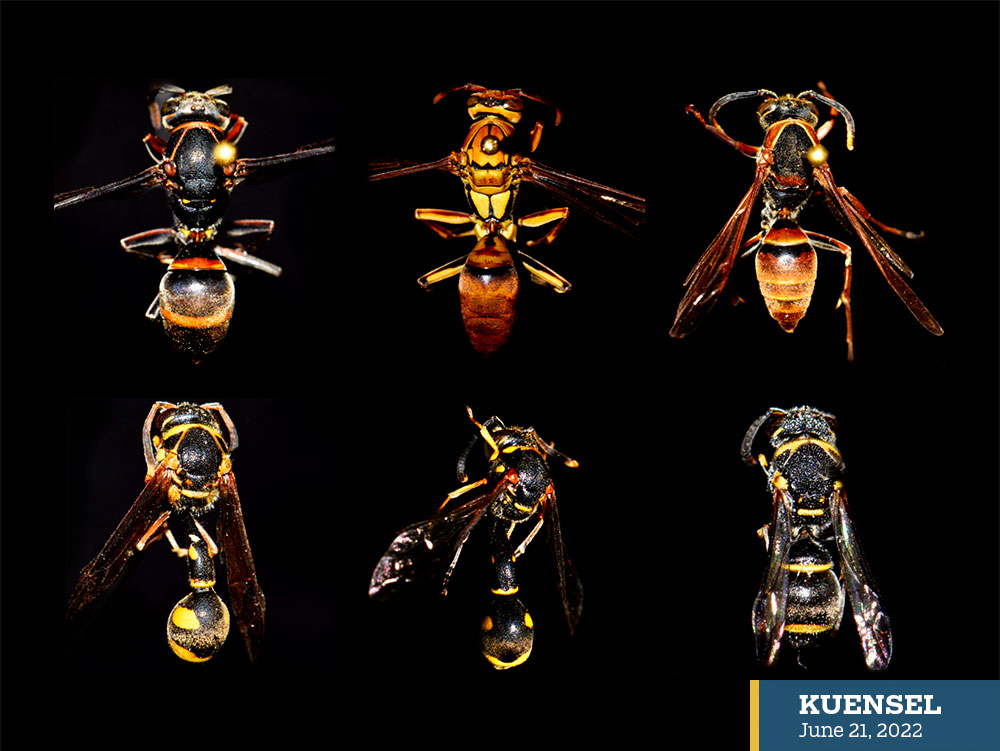Chhimi Dema
The country recently recorded 17 new species of wasps, taking the total record of wasps species to 73.
The new species were found in Samdrupjongkhar, Pemagatshel, Trashigang, Trashiyangtse, Tsirang, and Thimphu.
The 17 new wasps species consist of Eumeninae (Potter wasp), Polistinae (Paper wasp) and Vespinae (hornets).
The new species recorded in Bhutan are Allorhynchium metallicum; Eumenes assamensis, atrophicus, and punctatus; Paraleptomenes darugiriensi; Stenodyneriellus guttulatus and nepalensis; Subancistrocerus sichelii; Symmorphus ambotretus, tukvarensis, and violaceipenni; Polistes (Polistella) dawnae, japonicus, and rubellus; Ropalidia nigrita and hongkongensis; and Vespula orbata.
The research article on the new record was published in Zootaxa journal, a peer-reviewed scientific mega journal for animal taxonomists, this month.
An author of the publication, Phurpa Dorji, said that wasps serve as pollinators and bio-pesticides in the ecosystem.
He said that most wasps help in pollination allowing flowering plants to reproduce and bear fruits and crops. “Wasps are also predators serving as a bio-pesticides controlling number of pests such as caterpillars.”
In many parts of the country, wasps commonly known as ‘jinggum’ are considered a delicacy.
Three out of four crops across the globe producing fruits or seeds for human use as food depend on pollinators, according to a report by the Food and Agriculture Organisation.
“Improving pollinator density and diversity boosts crop yields. Pollinators affect 35 percent of global agricultural land, supporting the production of 87 of the leading food crops worldwide,” it stated.
Moths, flies, wasps, beetles, butterflies, and some animals in addition to wild bees pollinate plants.
Researchers attribute the lack of funds and difficulty in catching insects as challenges to the discovery of it.
Phurpa Dorji said lack of research funds is a major challenge for studying insects in the country. “Researchers have to go to the fields to collect specimens for study. A picture simply isn’t enough to study the insects.”
International reports point out that data scarcity makes it difficult to draw general conclusions about the changes in populations of insect species and the factors driving biodiversity change.
Phurpa Dorji said that there is no previous wasps repository. “This batch will serve as the first repository.”
He said that the discovery of new species indicates a pristine environment and a healthy ecosystem.
Studies for the new records were conducted with support from Bhutan Trust Fund for Environmental Conservation.
The research article was published by Phurpa Dorji, Tshering Nidup, Wim Klein, Cheten Dorji, Anthony Daglio, and Choki Gyeltshen.


